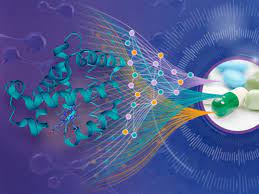Insights on Leveraging AI in Biopharmaceutical R&D: A Discussion with Kailash Swarna
Last month, Accenture released a report titled “Reinventing R&D in the Age of AI,” which explores how biopharmaceutical companies can harness artificial intelligence (AI) and other advanced technologies to enhance drug and therapeutic research and development. AI in Drug Research.
Kailash Swarna, managing director and Accenture Life Sciences Global Research and Clinical lead, spoke with PharmaNewsIntelligence about the report’s findings and how AI can address ongoing challenges in research and development (R&D), while offering a return on technological investments.
“Data and analytics are crucial in advancing drug development, from early research to late-stage clinical trials,” said Swarna. “The industry still faces significant challenges, including the time and cost required to bring a medicine to market. As a leading technology firm, it’s our role to leverage the best in data analytics and technology for drug discovery and development.”
AI in Drug Research
Accenture conducted detailed interviews with leaders from biopharma companies to explore AI’s role in drug development and discovery. These interviews were part of a CEO forum held just before the JP Morgan conference, where technology emerged as a major area of opportunity and concern.
Key Challenges in R&D
Understanding the challenges in the drug R&D landscape is crucial for identifying how AI can be effectively utilized. Swarna highlighted several significant challenges:
1. Scientific Growth “The rapid advances in biology and disease understanding present both opportunities and challenges,” Swarna noted. “While our knowledge of human disease has greatly improved, keeping pace with scientific progress in terms of executing and reducing the time and cost of bringing new therapeutics to market remains a major challenge.”
He described the clinical trial process as “fraught with complexities,” including data management issues. Despite industry efforts to accelerate drug development, it often still takes over a decade and billions of dollars.
2. Macroeconomic Factors Drug R&D companies also face challenges from macroeconomic conditions, such as reimbursement issues and the Inflation Reduction Act in the US. “These factors are reshaping how companies approach their portfolios and the disease areas they target,” Swarna explained. “The industry is undergoing a retooling to address these economic impacts.”
3. Technology Optimization Many companies have made substantial technology investments, but integrating and systematically utilizing these technologies across the entire R&D process remains a challenge. “While individual technology investments have been valuable, there is a significant opportunity to unify these efforts and streamline data usage from early research through late-stage development,” Swarna said.
Reinventing R&D with AI
The report emphasizes that technological advancements, particularly generative AI and analytics, can revolutionize the R&D pipeline. “This isn’t about a single technology but about a comprehensive rethinking of processes, data flows, and technology investments across the entire R&D spectrum,” Swarna stated.
He stressed that the reinvention of R&D processes requires an enterprise-wide strategy and implementation.
Responsible AI
Swarna also highlighted the importance of addressing potential challenges associated with AI. “At Accenture, we have a robust responsible AI framework,” he said. Responsible AI encompasses managing issues like bias and security.
Accenture’s framework considers factors such as choosing appropriate patient populations and understanding how bias might impact research data. It also addresses security concerns, including intellectual property protection and patient privacy.
“Protecting patient privacy and complying with global regulations is crucial when utilizing AI technology,” Swarna emphasized. “Without proper safeguards, we risk data loss or breaches.”
Measuring ROI of AI in Drug Research
To ensure that AI technologies positively impact the R&D lifecycle, Swarna described a framework for measuring return on investment (ROI). “Given the long cycle of our industry, we’ve developed objective measures to evaluate the impact of these technologies on cost and time,” he explained.
Companies can use quantitative measures to track interim milestones, such as recruitment costs and speeds. “These metrics allow us to observe progress in smaller increments rather than waiting for end-to-end results,” Swarna said. “The approach varies by company and their stage in implementing these technologies.”
Benefits of AI in Clinical Trials
Incorporating AI into clinical trials has the potential to reduce research times and costs. While Swarna and Accenture cannot predict policy impacts on drug pricing, he offered a theoretical benefit: optimizing technology could lower development costs, potentially making medicines more affordable and accessible.
Swarna noted that reducing R&D spending could lead to more effective drugs being available to larger populations without placing an excessive burden on the healthcare system.
For further details, the original report and discussion were published by Accenture and can be accessed on their official site. AI in Drug Research.







